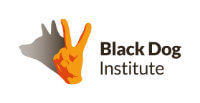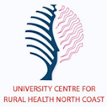Written by Angela Sheridan, WellMob

The WellMob website now has over 300 online wellbeing resources for our diverse Aboriginal and Torres Strait Islander mob. Resource Sheets for Workers have been developed as short-cuts to assist the workforce quickly source the best digital tools on certain topics to use with clients/ patients, families, communities and carers in client-based roles, health promotion and education.
These Resource Sheets for Workers make it easier for time-constrained health and wellbeing workers to access and share culturally responsive online resources.
Indigenous specific social and emotional wellbeing content provides workers with valuable knowledge and insights into the cultural, social and historical contexts that affect Aboriginal and Torres Strait Islander people’s mental health. This helps workers provide more culturally responsive mental health care.
The resources include videos, written information, podcasts, apps and websites and are a great tool for building rapport with Indigenous clients or to help explain health topics in a culturally sensitive way.
WellMob has also developed Resource Sheets for workers on the below topics to help support workers learning about this historical information enabling them build cultural and historical knowledge by providing short cuts to resources that help with:
Having this back ground context to inform how may consider these things differently in your work between Indigenous and no Indigenous clients.
Cultural and trauma informed considerations to integrate into your work practice with Indigenous clients
Indigenous specific social and emotional wellbeing content provides workers with valuable knowledge and insights into the cultural and historical contexts that affect Aboriginal and Torres Strait Islander people’s mental health. This helps workers provide more culturally responsive mental health care.
- Approach the resources with humility and curiosity, acknowledging that you may not have all the answers. Create a safe and non-judgmental space where clients can share their thoughts and insights. Be open to learning from their perspectives and experiences. Listen deeply to the client as they will be your teacher on themselves, beak down preconceived assumptions, share your knowledge with them about your area of work and systems – maintain transparency to build trust and a reciprocal teaching/learning rapport.
- Build cultural understanding and capacity to make your practice more culturally responsive by using the new Resource sheets for workers to find more resources that can help workers to further understand cultural and historical considerations when working with indigenous clients.
- Be aware of power imbalances between individual and service and healthcare systems/authority figures and work towards empowering individuals and communities to actively participate in their care. Foster a sense of trust, respect, and collaboration by valuing indigenous knowledge and perspectives. Learn more here: Understanding the impacts of colonisation.
- Consider social and emotional wellbeing, a holistic view of health, encompassing physical, mental, emotional, and spiritual well-being also termed Social and Emotional Wellbeing. Acknowledge and incorporate these aspects into the care provided. Recognise the interconnectedness between individuals, communities, and the environment. Learn more here: Understanding SEWB.
- Recognise the importance of community and kinship in Indigenous culture. Involve the individual’s family, extended family, and community members in the care process, with their consent. Understand that healing and support may come from connections with others.
- Tailor trauma-informed interventions to align with indigenous cultural values and beliefs. Incorporate storytelling, art, land-based activities, or other culturally appropriate methods to facilitate healing and resilience. Learn more here: Understanding healing from trauma.
- Support the self-determination and agency of individuals and communities. Advocate for equitable access to resources, services, and supports that address the specific needs and strengths of indigenous populations.
- Remember that cultural considerations should be individualised and contextualised, as there is significant diversity among Indigenous cultures. Collaboration, active listening, and ongoing learning are crucial for providing effective and culturally responsive trauma-informed care.
Some of the other topics of the new 2-page Resource Sheets that provide a shortlist of the best and deadliest resources Include:
Some other benefits of using culturally appropriate online resources in your client base work is:
- Bridge gaps in health literacy: Indigenous clients may face challenges in accessing and understanding mainstream mental health resources due to cultural and language WellMob’s resources can help bridge these gaps by offering information in a culturally appropriate and accessible format.
- Use these resources to support clients in gaining a better understanding of their health issues and treatment options.
- Indigenous-specific online resources often emphasise empowerment, self-determination, and community-based healing. Non-indigenous mental health care workers can use these resources to open conversation with their client regarding that client’s perspectives around what they see as most useful and relevant to them.
- Engage your clients in conversations around the resources you share to break down stigma around tricky topics. Encourage clients to reflect on the content, ask questions to draw out their thoughts and perspectives. This collaborative approach helps build rapport, trust, and a shared understanding of their health and wellbeing goals. Respect their knowledge and lived experience acknowledging your role as a learner.
For more tips about practical considerations in using digital tools with Indigenous clients – check out WellMobs previous blog https://www.emhprac.org.au/news/tips-to-using-online-resources-found-on-the-wellmob-website-with-aboriginal-and-torres-strait-islander-clients/
And check out the new Resource Sheets for workers page on our website!








